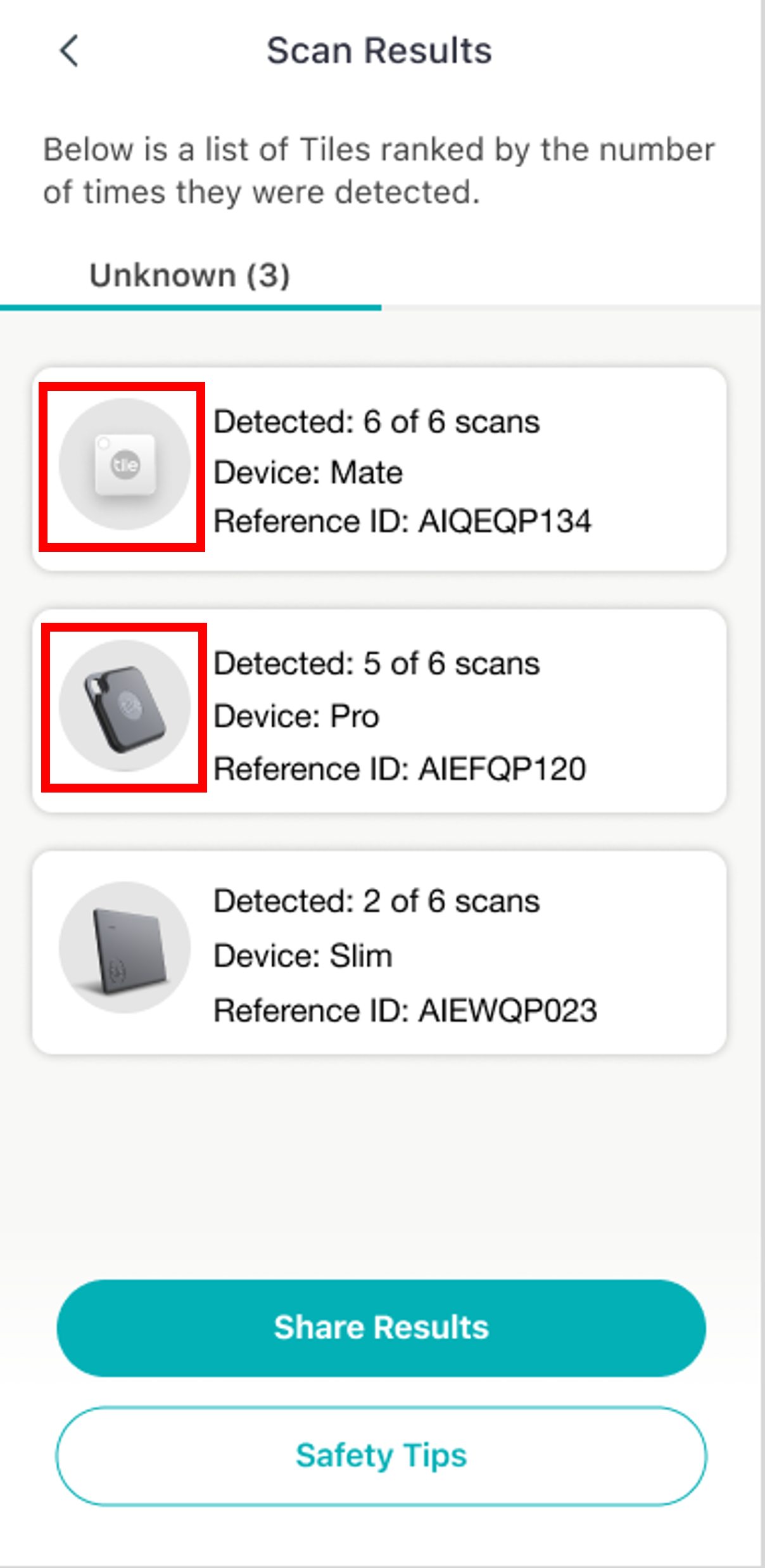Lost-item tracker and AirTag competitor Tile is today introducing its first anti-stalking safety feature, called “Scan and Secure.” The technology was first announced in October with a promised arrival date of sometime in early 2022. Using Tile’s mobile app, users will now be able to scan for unknown Tiles or Tile-enabled devices that may be traveling with them. The company notes that users don’t have to be Tile owners or a part of Tile’s finding network in order to leverage the new technology — it’s accessible to anyone across both iOS and Android.
To use Scan and Secure, users will need to be on the latest version of the Tile app. They’ll also need to have Bluetooth, Location or Location Services, and Precise Location set to On on their mobile device. Tile says users will be prompted within the mobile app if they need to change these or any other permission settings in order for the feature to work.
Image Credits: Tile
After updating, new users will then be able to tap the new Scan icon at the top right corner of the app’s Sign In screen to access the feature. Existing users can also reach Scan and Secure via the app’s Settings.
The scan process doesn’t offer a precision finding tool that will allow people to locate a Tile device that’s close to them. Instead, Tile notes that users will have to walk or even drive a certain distance away from their original location to work. The full scan can take up to 10 minutes of uninterrupted time to complete and deliver the most accurate results, Tile says. It won’t work if you’re just walking around in your home or in a crowded place, like on public transportation, where it could detect other Tiles nearby.
The results of the scan will be displayed in the app when complete, which Tile advises users could save to give to law enforcement. The company notes that users may want to run multiple scans to eliminate the possibility of devices that had briefly passed by during a scan versus those that were actually traveling with them. It also suggests using the images in the scan to try to locate the devices by how they look. Unfortunately, without precision-finding capabilities, it’s likely that some users will have a hard time locating well-hidden devices.

Image Credits: Tile
The company says it will work with law enforcement through court orders to identify the owners of devices that have been used in criminal activities, like stalking.
Tile’s Scan and Secure feature is not as comprehensive as the set of tools that are available from Apple for AirTag safety. After numerous stories about AirTags being used for stalking — and even carjacking — Apple updated its AirTags and Find My network with enhanced warnings and alerts. These included a warning to would-be stalkers that Apple can identify them and share that data with law enforcement, as well as more detailed, proactive alerts for potential stalking victims. And Apple said it would allow users to locate AirTags traveling with them using precision-finding capabilities and louder alerts through later updates, updated its documentation, and will make it possible to find devices that have had their speakers disabled.
Scan and Secure is rolling out to Tile mobile app users gradually over the next couple of weeks but will be accessible to everyone on iOS and Android, with or without a Tile account.
The company noted it consulted with safety experts on the new functionality, who advised that allowing users to initiate a scan themselves would be a useful feature — particularly because nearly 70% of stalking victims know their abuser. Many are even their victim’s partner.
“If someone is a victim of domestic abuse and they are preparing to leave their partner, for example, it’s helpful to be able to choose the time and place that’s safest for them to proactively check if there is a device on them that could track their location,” said Erica Olsen, director for the National Network to End Domestic Violence’s Safety Net Project. “Putting the control in their hands is an important part of increasing safety,” she said.
Privacy concerns unrelated to stalking issues have plagued Tile in recent months, after reports indicated that Tile’s new parent company, Life360, was selling customer data to a location broker. After the investigation, Life360 said it would end the practice.
Tile said it will continue to work with other experts and advocacy groups to further develop its safety features over time.
Read the original article @ TechCrunch




